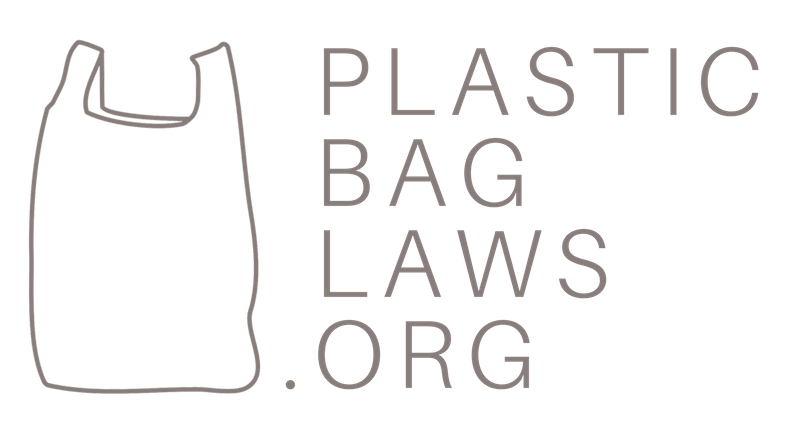Perspective: Plastic Bag Waste in Developing Countries
by Shanna Foley Plastic bag waste has severe repercussions across the United States. For instance, approximately one million plastic bags pollute the San Francisco Bay each year,[1] and it costs the state of California $25 million annually to dispose of plastic bags in landfills.[2] However, developing countries, with fewer resources to devote to waste collection and management, have particularly struggled with plastic bag waste.
In Bangladesh, where survey reports showed about 10 million plastic bags were used everyday, “one could find the polyethylene bags everywhere i.e in the street, dumpsites, drains, ditches, open-fields, roof tops, hanging from trees and overhead cables, floating on ponds, canals, rivers.”[3] The extent of plastic bag waste became particularly apparent after a 1998 flood in which two thirds of the country was immersed in knee-deep water.[4] Plastic bags clogged city drain pipes, “delaying [the] process of recession of flood water of Dhaka City.”[5]
While citizen campaigns had formed much earlier to reduce plastic bag use in Bangladesh, after the flooding, the Ministry of Environment began its own campaign against plastic bags. As part of its campaign, the Ministry commissioned a study, which found that plastic bags were contributing to “soil degradation, loss of agricultural land fertility, blocking up of the cities’ drainage and sewerage systems, water logging and the spread of harmful microbes and bacteria giving rise to epidemics.”[6]
In South Africa, plastic bag waste is so numerous, plastic bags have been facetiously dubbed the country’s “national flower.”[7] Similar impacts have been documented in countries across Africa, where plastic bags have clogged sewer drainpipes, and killed and livestock and wildlife that ingest the bags.[8] For instance, an article in the Christian Science Monitor described how “[o]nce a month, John Ebiwari drags an iron rake through the open sewer that runs in front of his house in Nigeria's sprawling commercial capital of Lagos and scoops out the discarded plastic bags that block the flow of bubbling black filth.”[9]
Because plastic bags can clog water pipes and drainage systems, they often contribute to the creation on standing pools of water, which in turn can act as a breeding ground of mosquitoes.[10] Thus, some commenters have suggested that plastic bag refuse can contribute to the spread of malaria.[11]
In response, countries all over the world are banning bags, or implementing fees on bags. Zimbabwe,[12] Rwanda, Tanzania, and Uganda have passed laws restricting plastic bag use, and Kenya is expected to do the same.[13] Other countries are finding creative ways to reuse plastic bags. For instance, Niger is pressing used plastic bags into bricks for its roads.[14]
Plastic bag bans have also helped to revive the jute – a vegetable fiber that can be woven into a thread for reusable bags, and was used for bags in many countries before plastic bags were popularized – industry.[15] For instance, Bangladesh, which banned plastic bags in 2002, has seen a 70% increase in jute export.[16] Revival of jute manufacturing has created jobs in Bangladesh. Jute production began to decline in Bangladesh in the 1980’s “when the world, especially European countries, switched to synthetic fibres,” and nearly 25,000 people lost their jobs when the government shut down the country’s largest state-run-jute mill.[17] Jute production provides an environmentally friendly way in which to replaced lost plastic-bag manufacturing jobs. Asma Mohabub Moni, a Bangladeshi jute promoter, states that the growing demand for reusable jute shopping bags has “grown exponentially,” with her own business expanding from 15 to 850 employees in the last six years.[18]
[1] Save the Bay, About the Plastic Bag Campaign, http://www.savesfbay.org/about-campaign#why
[2] Californians Against Waste, The Problem of Plastic Bags, http://www.cawrecycles.org/issues/plastic_campaign/plastic_bags/problem
[3] Banning Polyethylene Shopping Bag: A Step Forward to Promoting Environmentally Sustainable Development in Bangladesh at 2, Bangladesh Centre for Advanced Studies, available at ekh.unep.org/files/Paper%20on%20Polythene.doc
[4] Id. at 3.
[5] Id. at 4.
[6] Id.
[7] David Chazan, A World Drowing in Litter, BBC News (March 4 2002) http://news.bbc.co.uk/2/hi/europe/1849302.stm
[8] Sustainable Management of Plastic Bag Waste: The Case of Nairobi, Kenya at 39, Girum Bahri, available at http://www.sysav.se/upload/ovrigt/Sysav%20Utveckling%20rapporter/Sustainable%20management%20of%20plastic%20bag%20waste.pdf
[9] Sarah Simpson, Clogged by Plastic Bags, Africa Begins Banning Them, The Christian Science Monitor (Nov. 30, 2007) http://www.csmonitor.com/2007/1130/p01s04-woaf.html
[10] Bahri, supra note 8; Abigail Doan, Africa Wages War on Plastic Bags, (Dec. 17, 2007). http://www.inhabitat.com/2007/12/17/africas-outlook-and-ban-on-plastic-bags/
[11] Bahri, supra note 8; Doan, supra note 10.
[12] Zim to Ban Plastic Bags, New Zimbabwe (Aug. 18, 2010) http://www.newzimbabwe.com/NEWS-3087-Zim+to+ban+plastic+shopping+bags/NEWS.aspx
[13] Simpson, supra note 9.
[14] Natasha Burley, Niger Paves Over Its Garbage Problem with Plastic-Bag Bricks, Terra Daily: News About Planet Earth (Nov. 27, 2005) http://www.terradaily.com/news/africa-05o.html
[15] seham, Bangladesh Jute Gets Boost From Plastic Bag Ban, Eco Periodicals: Renewable Energy News Network (June 27, 2010) http://ecoperiodicals.com/2010/06/27/bangladesh-jute-gets-boost-from-plastic-bag-ban/
[16] Id.
[17] Id.
[18] Id.
